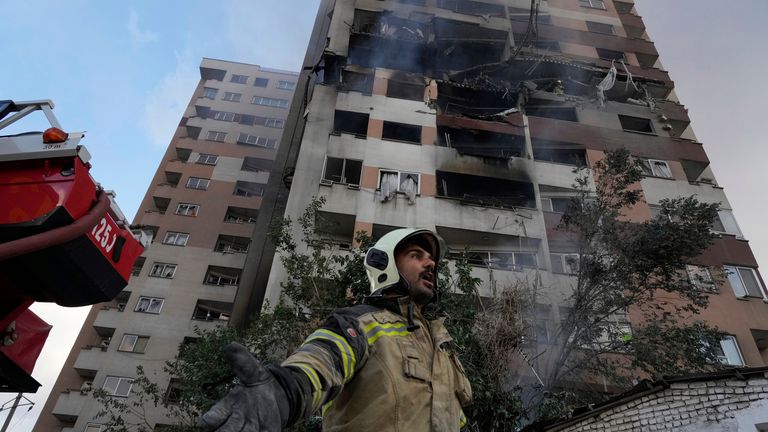U.S. President Donald Trump says he will decide within two weeks whether Washington will be involved in the Israel-Iran conflict, backing Israel’s military campaign against Iran, citing a “substantial” possibility that diplomatic talks could still take place.
Amid mounting pressure over his administration’s response to the escalating conflict, Trump’s decision to delay any immediate action opens a potential window for negotiations with Tehran.
“Based on the fact that there’s a substantial chance of negotiations that may or may not take place with Iran soon, I will make my decision whether or not to go within the next two weeks,” Trump said in a message delivered Thursday by White House Press Secretary Karoline Leavitt.
Speaking to reporters, Leavitt acknowledged the public debate surrounding possible U.S. intervention and defended the president’s timeline, stating that Trump is not stalling but rather giving diplomacy a chance. “If there’s a chance for diplomacy, the president’s always going to grab it, but he’s not afraid to use strength as well,” she said.
Still, she emphasised the urgency of the situation, warning that Iran could assemble a nuclear weapon within weeks. “Iran has all that it needs to achieve a nuclear weapon. All they need is a decision from the supreme leader to do that, and it would take a couple of weeks to complete the production of that weapon,” she added.
Iran, however, maintains that its nuclear ambitions are purely peaceful and has repeatedly denied pursuing nuclear arms.
Trump also claimed Iran had reached out in hopes of sending officials to the White House to negotiate a potential resolution. However, Iranian officials have publicly denied making such a request.
While there has been some level of backchannel “correspondence” between Washington and Tehran since Israel launched airstrikes on Iran last week, Leavitt noted there are currently no plans for Trump’s special envoy, Steve Witkoff, to attend a diplomatic meeting involving European representatives and Iran’s foreign minister in Geneva.
Inside the White House, Trump has met with his top national security team daily in the Situation Room and is expected to continue high-level discussions until he departs for the NATO summit in the Netherlands on Monday.
The president’s self-imposed two-week deadline follows a period of intense speculation about whether he would back Israel’s military operations. He recently described Iran’s Supreme Leader, Ayatollah Ali Khamenei, as an “easy target,” signalling a more confrontational tone even as he keeps the door open for talks.
Israel-Iran: Trump withdrew US from 2015 Iran nuclear deal
During his first term, Trump withdrew the United States from the 2015 Iran nuclear deal; however, in recent weeks, he has floated the idea of pursuing a new agreement. Nevertheless, he has voiced support for Israeli strikes on Iran’s nuclear infrastructure and senior military leadership.
One complicating factor is that the U.S. is currently the only nation equipped with advanced “bunker buster” bombs capable of targeting fortified Iranian nuclear sites like the Fordo enrichment facility. “We have capabilities that no other country on this planet possesses,” Leavitt stressed.
While the White House maintains it is weighing all options, key voices within Trump’s political base have expressed firm opposition to military involvement. Prominent figures in the “Make America Great Again” movement, such as former White House adviser Steve Bannon and media personality Tucker Carlson, have warned against U.S. strikes.
Even so, Leavitt urged Americans to have confidence in Trump’s judgment. “Trust in President Trump. President Trump has incredible instincts,” she said, highlighting his longstanding opposition to entangling U.S. forces in Middle Eastern conflicts — a stance that helped secure his 2016 and 2024 electoral victories.



